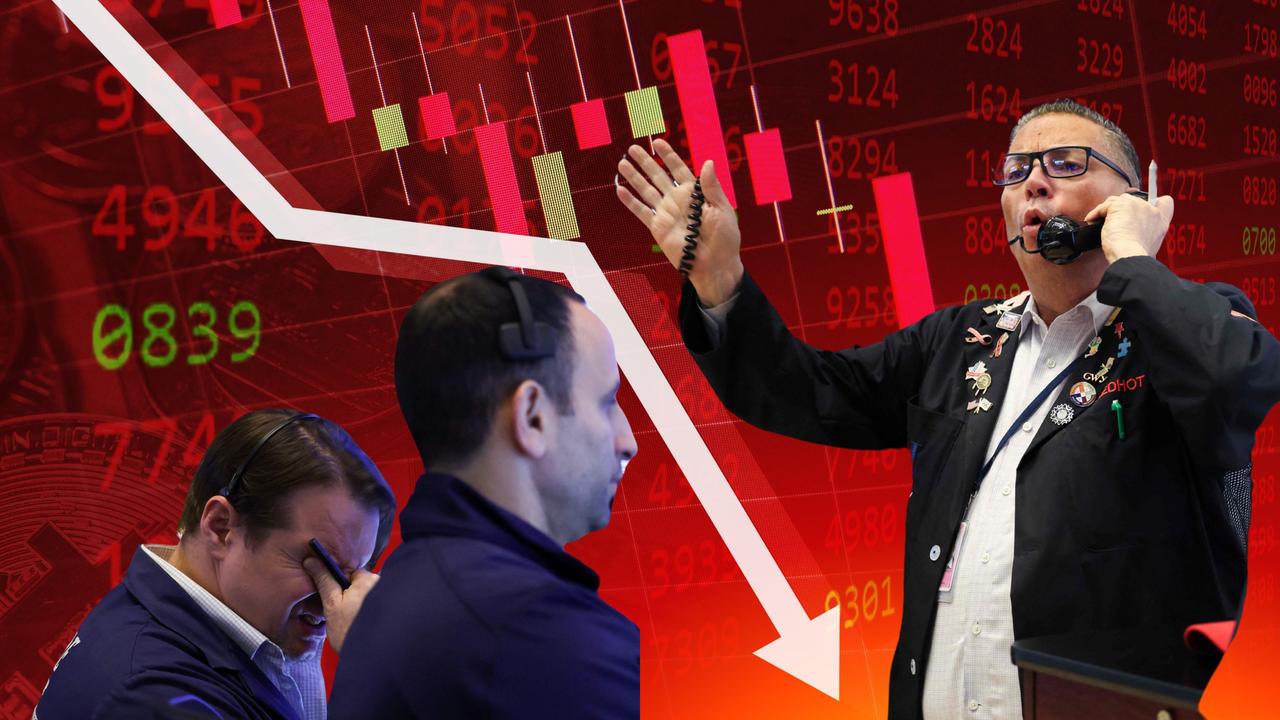Business world's changing not ending
TECHNOLOGY doesn't always follow the calls of absolute destruction.
DAVID Jones and Myer shares have halved, the Coles chief executive says "consumer sentiment is the worst in 20-30 years" and headlines carrying downgrades and "receivers appointed" fill the front pages of our dailies. This is precisely when once-in-a-lifetime bargains can be had.
As I sit on the sunny beaches of Thailand with my family, the headline reads "Retailers want a level playing field."
Really? Do you think? I buy my sports gear and my entertainment online, or at least wait to travel overseas and purchase clothing and footwear, mostly made in China, or Vietnam, or Indonesia, or Bangladesh, at a fraction of the price I pay at home.
But what is surprising is the retailers keep bashing the $1000 tax and duty-free threshold for imported purchases.
But it's not the consumer who should be penalised. Why aren't retailers taking their cause to their landlord? Their balance sheets are about to look a whole lot uglier when operating leases are forced to be put on to reflect the contingent liabilities they are. Australian retail rents are some of the highest in the world.
And why aren't they complaining to their state and federal member? Penalty rates, for example, are no longer appropriate when internet retailing enables consumers to shop 24 hours a day, seven days a week, anywhere in the world -- with free delivery!
Throughout history technological shifts have threatened, disrupted and ultimately destroyed cosy oligopolies and industries that fail to change or can't because their leaders or governments lack the foresight. It's called disintermediation and it's ever present.
The classic Australian case study is arguably Fairfax's "rivers of gold" transforming, in just a few short years, into "rivers of problems". Advertising and classifieds continue to move to Seek, Carsales, Wotif, Realestate.com.au, Webjet and eBay. The suddenness and magnitude of the transformation tells me that for many it couldn't be predicted, for at the helm of Fairfax were MBAs, Australian Graduate School of Management deans and former McKinseyites.
Back to retailing, and how do the likes of Harvey Norman, Myer and David Jones compete in an online market for relatively low value and poorly differentiated imported products? I suspect internet start-up The Iconic would be trouncing the department stores in the internet sales game and that's soon after their own launch.
With the high Australian dollar and better delivery and payment system reliability, everyone is heading online. There's a land grab, a gold rush and eureka moments occurring everywhere. Whether it's reading the newspaper, buying running shoes (or clothing), booking the holiday, the hotel or the taxi, searching for a job, looking for a place to rent or buy, or selling the car, we are letting our digit(al)s do the walking more than ever.
From an investment viewpoint, what does this all mean for the likes of Fairfax, David Jones, Harvey Norman and Myer? Are these stocks in a cyclical or structural decline? Can these businesses change their business models and monetise the very technological threat that is the online market place?
This year will go down as the year of a lot of soul searching, particularly by company executives. "Strategic positioning" will be a header on the whiteboards of many boardrooms. In each case, return on equity will be considerably lower than long-term averages. How do they get back to the glory days?
Across the decades new technology changed the world. When the car was commercialised, the horse, the blacksmith, the saddle maker were all crushed -- and pubs no longer had to worry about watering and stabling their patron's horses. And when commercial flight became a reality the shipping companies were forced into decline.
But technology doesn't always follow the calls of absolute destruction. Ships still ferry people all over the world, the phone didn't kill the letter and Skype hasn't killed the phone. Video didn't kill cinemas and the internet won't completely replace brick and mortar retailers.
But it will change the landscape, forcing many into receivership and the survivors into new revenue models and distribution channels.
How do I know all is not lost? Because at Premier Investments Solly Lew is building up the team, with Mark McInnes hiring five senior managers from DJs and Myer and Collette Garnsey from Pacific Brands. There's a department store team over at Premier now but no department store. With $300 million in cash and everyone running to the retailers' exits, I reckon Lew and co are just getting started.
Roger Montgomery is the founder of Montgomery Investment Management and the author of Value.able: How to Value the Best Stocks and Buy Them for Less Than They're Worth, available at www.rogermontgomery.com



